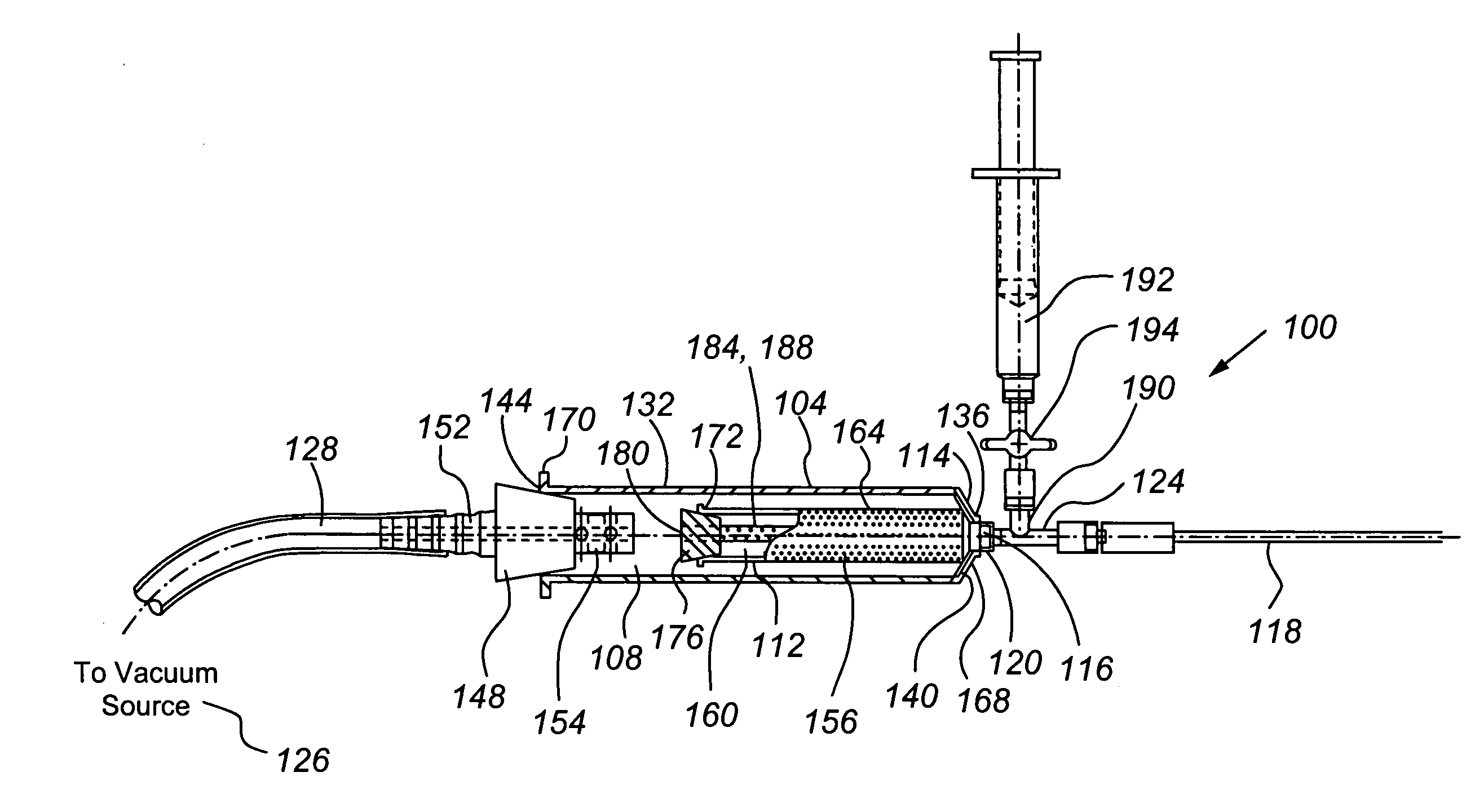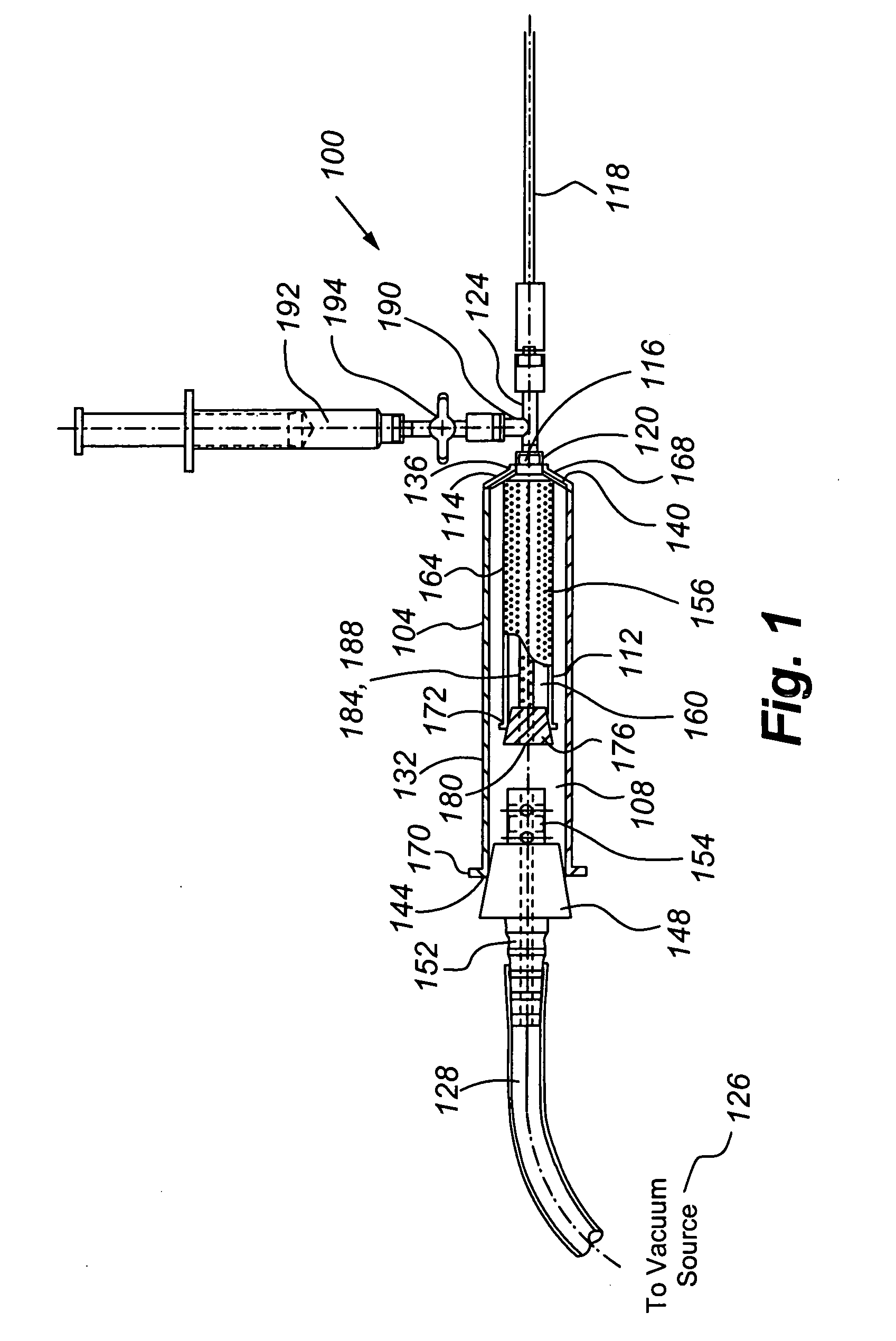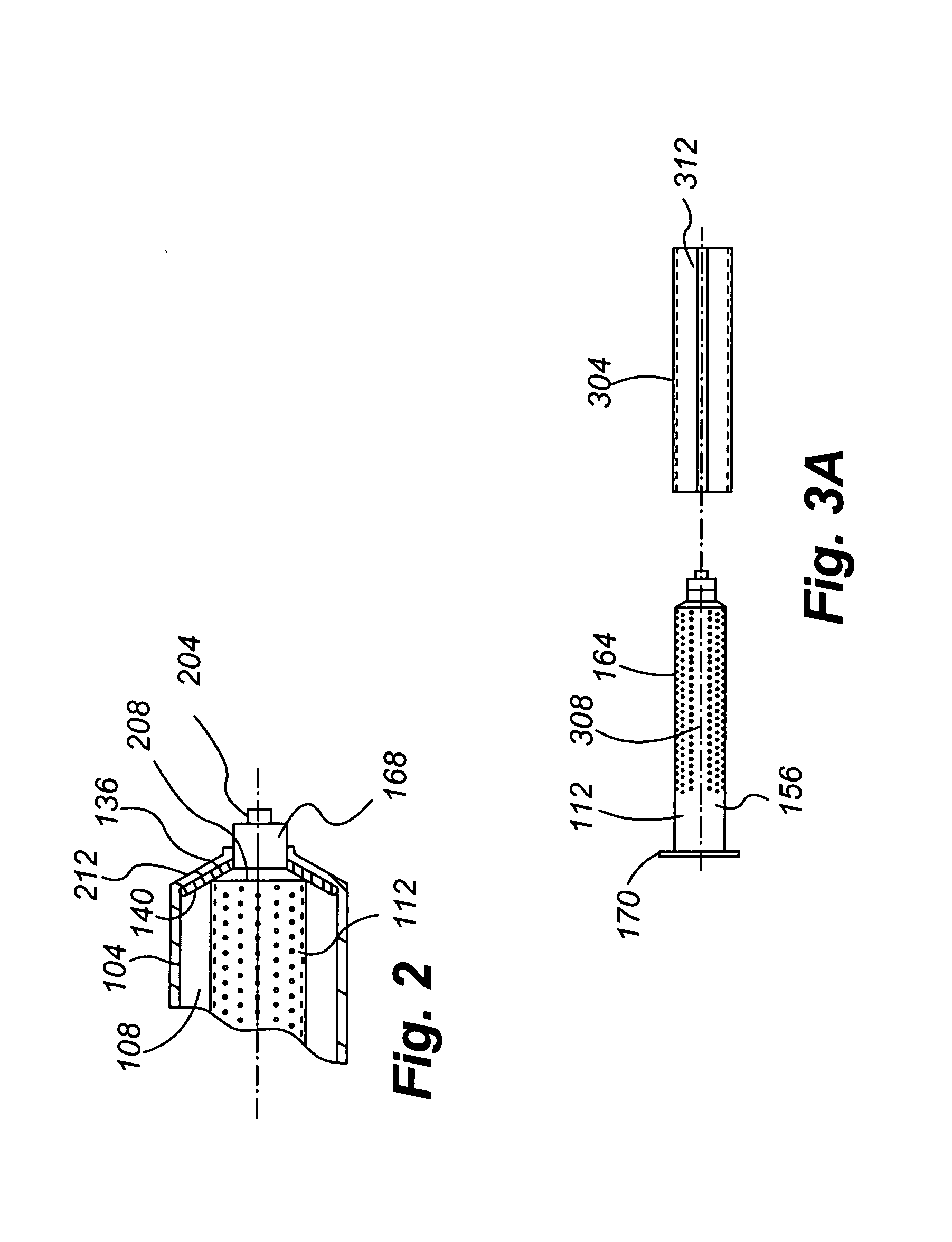Tissue transplantation method and apparatus
a tissue and apparatus technology, applied in the field of tissue transplantation, can solve the problems of inability to perform the procedure in time, inconvenient operation, and inability to centrifuge the fat, so as to reduce the need for centrifugation or minimize the effect of the need for fat removal
- Summary
- Abstract
- Description
- Claims
- Application Information
AI Technical Summary
Benefits of technology
Problems solved by technology
Method used
Image
Examples
Embodiment Construction
[0034] Embodiments of the present invention generally enable or facilitate tissue transplantation in accordance with a number of tissue transplantation principles, such as the following:
[0035] (1) remove fat with a 12-gauge cannula for the best fat parcel size;
[0036] (2) avoid requiring fat cells from traveling long tube distances;
[0037] (3) maintain the suction at low or very low vacuum power (e.g., 8 to 12 inches of mercury);
[0038] (4) use transfer conduits having uniform internal diameters and use transfer conduits having internal diameters that are as large as mechanically feasible;
[0039] (5) avoid exposure of fat cells to air and light;
[0040] (6) avoid exposing the fat cells to water or saline;
[0041] (7) avoid vigorously mixing or shaking containers of donor fat cells while adding additives;
[0042] (8) filter out blood, serum, anesthetic, dead fat cells and triglycerides from removed fat tissue;
[0043] (9) treat removed fat tissue with additives to protect the liposite a...
PUM
 Login to View More
Login to View More Abstract
Description
Claims
Application Information
 Login to View More
Login to View More - R&D
- Intellectual Property
- Life Sciences
- Materials
- Tech Scout
- Unparalleled Data Quality
- Higher Quality Content
- 60% Fewer Hallucinations
Browse by: Latest US Patents, China's latest patents, Technical Efficacy Thesaurus, Application Domain, Technology Topic, Popular Technical Reports.
© 2025 PatSnap. All rights reserved.Legal|Privacy policy|Modern Slavery Act Transparency Statement|Sitemap|About US| Contact US: help@patsnap.com



